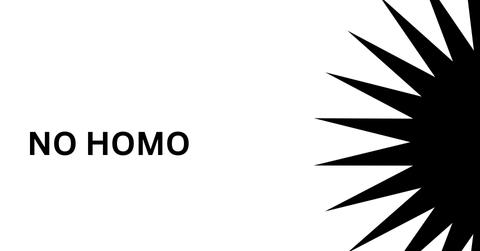
No Homo: Redefining Masculinity in Hip-Hop
Exploring the complexities of masculinity in hip-hop, "No Homo: Redefining Masculinity in Hip-Hop" delves into how the genre shapes and challenges traditional notions of manhood.
By Evan MajorsJune 27 2024, Published 2:50 p.m. ET
I am a 90s hip-hop head through and through. During that era, a rapper's pen was their sword. It was part of the code to be ready to pick up the mic and slay any MC who dared to step into the arena. I love Hip-Hop. Pause. Today, as a middle-aged Black Puerto Rican man, I find it hard to love hip-hop. As a high school and college-age boy, I made excuses for hip-hop even though I was keenly aware that parts of hip-hop didn't love me back.
Hip-hop always loved the parts of me that were outwardly tough, hyper-masculine, bitch-hoe calling, 'playalistic,' pussy gettin',' down-ass nigga. Yet, amidst the trap beats and bars, there lurks a shadow—an unspoken rule that dictates how men, especially Black men, should express themselves that extends beyond the genre, lest they be labeled as something they are not—no homo.
During my formative years of school, I remember vividly the early rigid enforcement of gender norms, where any deviation from the prescribed image of how boys were supposed to act was met with scorn and ridicule. I was raised in a conservative Midwest town, surrounded by liberalist ideas because of the Big 10 university within it.
I remember playing sports with the boys and jumping rope with the girls on the playground. Had I known boys were not allowed to jump rope unless they wanted to be seen and taunted as “gay” or a “faggot” I would have reconsidered my choice of activity. I did not understand then that two things could exist simultaneously and that I could be tough and soft.
From the bravado of street life to the swagger of success, the portrayal of the Black male image has long been a central theme in Black culture, sports, hip-hop music, and its accompanying lifestyle. Recently, Duke University basketball player Jared McCain received backlash for painting his nails. To many the move was unfathomable and not understood why this man, a young Black male, would paint his nails unless he was trying to tell the public something about his sexuality.
In the same way, rapper Lil Uzi Vert introduced his androgynous alter-ego, Leslie Chow, to the public last year. In the same way, Young Thug and Lil B wore dresses, and Cee-Lo Green and Andre 3000 were their predecessors. Beyond that, we are seeing Black men express themselves not only via fashion but also expose their true selves, i.e., their 'gayness' to one another, like Jerrod Carmichael expressing his love to his best friend, rapper Tyler, the Creator, in his HBO series, "Jerrod Carmichael Reality Show." One of the most vulnerable moments between two Black men in pop culture I have seen on TV, which made a lot of viewers uncomfortable because we are still not used to seeing Black love expressed on TV, especially gay Black love.
Unlike our white counterparts, Black men have never been able to be themselves. Often, our ideas of masculinity are intertwined with our religious and Biblical indoctrination, which don't lend themselves to gender exploration and certainly not gayness or queerness, irrespective of our birth-assigned gender, despite possessing both masculine and feminine traits. However, our gender difference is reinforced in everything we do – within our families, friendships, at work, public spaces, and educational institutions.
But why are Black men in hip-hop, perhaps more than in any other genre, burdened with the weight of societal expectations? The answer lies in the insecurities of a culture grappling with its own identity just as it always has—a culture that sees vulnerability as weakness and authenticity as a liability, even in the context of keeping it “one hundred.” In a world where toughness is equated with strength and emotion is dismissed as a sign of weakness, it's no wonder men are still forced to wear masks of stoicism, concealing our true selves behind a façade of machismo or what is now labeled as 'toxic masculinity.'
In recent years, there has been a growing movement within hip-hop to challenge these outdated notions of masculinity to embrace a more inclusive and expansive vision of manhood. Artists like Frank Ocean, Young M.A., Tyler, the Creator, and Lil Nas X have dared to defy convention, openly expressing and challenging traditional gender roles. Their courage has paved the way for a new generation of artists who refuse to be confined by the limitations of the past.
Yet, despite this progress, homophobia still looms large over hip-hop culture and Black culture, casting a long shadow of fear, prejudice, and straight-up ignorance. The mere suggestion that a man might deviate from the norm—whether through his fashion, his speech, or his sexuality—is enough to provoke outrage, hate, and violence. But what does it say about our culture when being true to oneself is seen as an act of defiance?
It's long overdue for hip-hop to embrace a more nuanced and inclusive understanding of being a man. Hip-hop and the Black people who create it are still a powerful force. We must challenge the hate that seeks to limit our expression and box us into categories as people and artists forge a new path forward guided by understanding, acceptance, and, dare I say, love. Self-expression is neither straight nor gay. Self-expression is art. It's a form of being. It's humanness.

